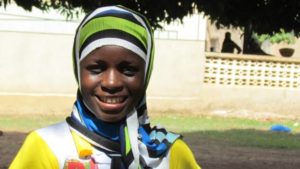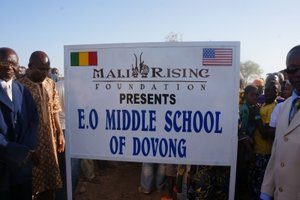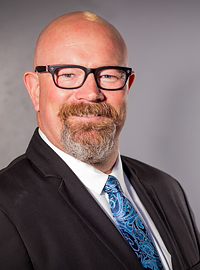Mali Rising Foundation Works to Empower Youth Through Education
July 12, 2017

It’s a shocking statistic: In Africa, where nearly 50% of the population is under age 15, seven out of 10 rural children have never set foot in a school―nor will they ever do so.
In the West African country of Mali, 69% of children are enrolled in primary school. However, only 34% continue to secondary school. Reasons for this steep drop in attendance include an inability to pay school fees, a lack of middle schools accessible to rural populations and gender inequity. But with evidence that each additional year of secondary schooling increases a student’s future income by 10-20%, providing better access to middle schools is key to creating a lasting impact.
The Mali Rising Foundation was formed in 2004 to provide accessible, quality education for children, focusing on middle school education. The foundation’s goal is to establish a middle school within walking distance for every child in every rural village.
 The work Mali Rising accomplishes is EO Global Board member Fred Johnson’s passion. In 2013, Fred led 26 EO chapters worldwide, including his own EO Utah, to raise US$45,000 to build the EO Middle School of Dovong.
The work Mali Rising accomplishes is EO Global Board member Fred Johnson’s passion. In 2013, Fred led 26 EO chapters worldwide, including his own EO Utah, to raise US$45,000 to build the EO Middle School of Dovong.
We asked Fred to share his experience in helping to increase literacy rates and access to education in Mali.
What led you to this important work?
A close friend of mine founded Mali Rising, and I quickly became inspired to offer support when I learned about Mali’s low literacy rate and the poverty that coincides with it. When I traveled to Mali and met the amazing people there, I knew I had found my true purpose. When a child takes your hand and thanks you from the bottom of his or her heart for the opportunity to learn, you never forget that moment. In 2008, I asked to join the board of directors, and have served on the board as chairman for four years and in other capacities ever since.
How does Mali Rising approach its vast undertaking?
We partner with local villages to build middle schools. The village provides the land and 20% of construction costs. Mali Rising does the rest. The foundation forms long-term partnerships with the villages its schools serve, ensuring that they deliver and succeed in their mission.
In 13 years, Mali Rising has:
- Achieved a graduation rate 1.5 times the national average
- Educated approximately 12,000 children
- Built 22 schools, each benefiting an average of 170 students per year
What impact is Mali Rising making on students, families and communities?
We have provided an educational option for children in the rural villages of Mali who otherwise would not have the opportunity to attend middle school, much less high school.
In September 2016, we launched an effort to recruit more girls to our schools and support their educational success. Girls face challenges that their male counterparts don’t. For example, school fees are typically paid for boys rather than girls. Early marriage or pregnancy as well as families needing help with chores at home are other factors that girls face. By addressing these issues, we have made it possible for girls to continue their education and even helped several qualify for high school scholarships or nursing and midwifery training.
The challenge is significant: While 55% of girls attend primary school, only 23% go on to middle school. The statistics are worse in rural villages, which is why we locate our schools in those areas.
Girls who receive an education benefit from the experience very directly, as do their children: They have their first child later, are less likely to die in childbirth and are more capable of providing children with a healthy upbringing. Why? Because educated mothers have the tools to understand nutrition, practice basic hygiene, recognize signs of illness and seek help early if they suspect problems. Educating women benefits families, villages and the entire country. Helping Mali’s girls enroll and stay in middle school will positively impact the future of the nation.
What is one of the biggest lessons you’ve learned from this work?
I’ve been privileged to meet some of the world’s most beautiful and talented people in the most remote and rural places on the planet. Though they are very different from me, the people of Mali use their knowledge and creativity to produce some of the most beautiful art and music. They make their society work no matter how extremely prohibitive their environment and conditions may be.
How have your leadership experiences in EO impacted your work in Africa?
It’s actually the other way around: My work in Africa gives me a new way to see and work in EO. I think the most important thing I’ve learned is that, regardless of how a society operates or how dysfunctional it may seem to outsiders, there are always opportunities for entrepreneurs to be creative, leverage available resources and succeed in effecting positive change.
I ask my fellow EOers to use your talents, knowledge and experience to help shape the world around you. Your reach is vast. Use your connections and life experiences to create meaningful and lasting change in the world. Be the influence that helps better the lives of people and their communities.
Above all, put your entrepreneurial skills to work in a social cause you believe in. Put some good in the world.
See pictures of the schools, get to know current students and make a donation at www.malirisingfdn.org.
 Fred Johnson is an EO Global Board member, founder of Eagle Environmental, Inc., and board member of Mali Rising Foundation.
Fred Johnson is an EO Global Board member, founder of Eagle Environmental, Inc., and board member of Mali Rising Foundation.
Since 1987, EO has been transforming the lives of the entrepreneurs who transform the world. Learn what it’s like to join the only global network exclusively for entrepreneurs.